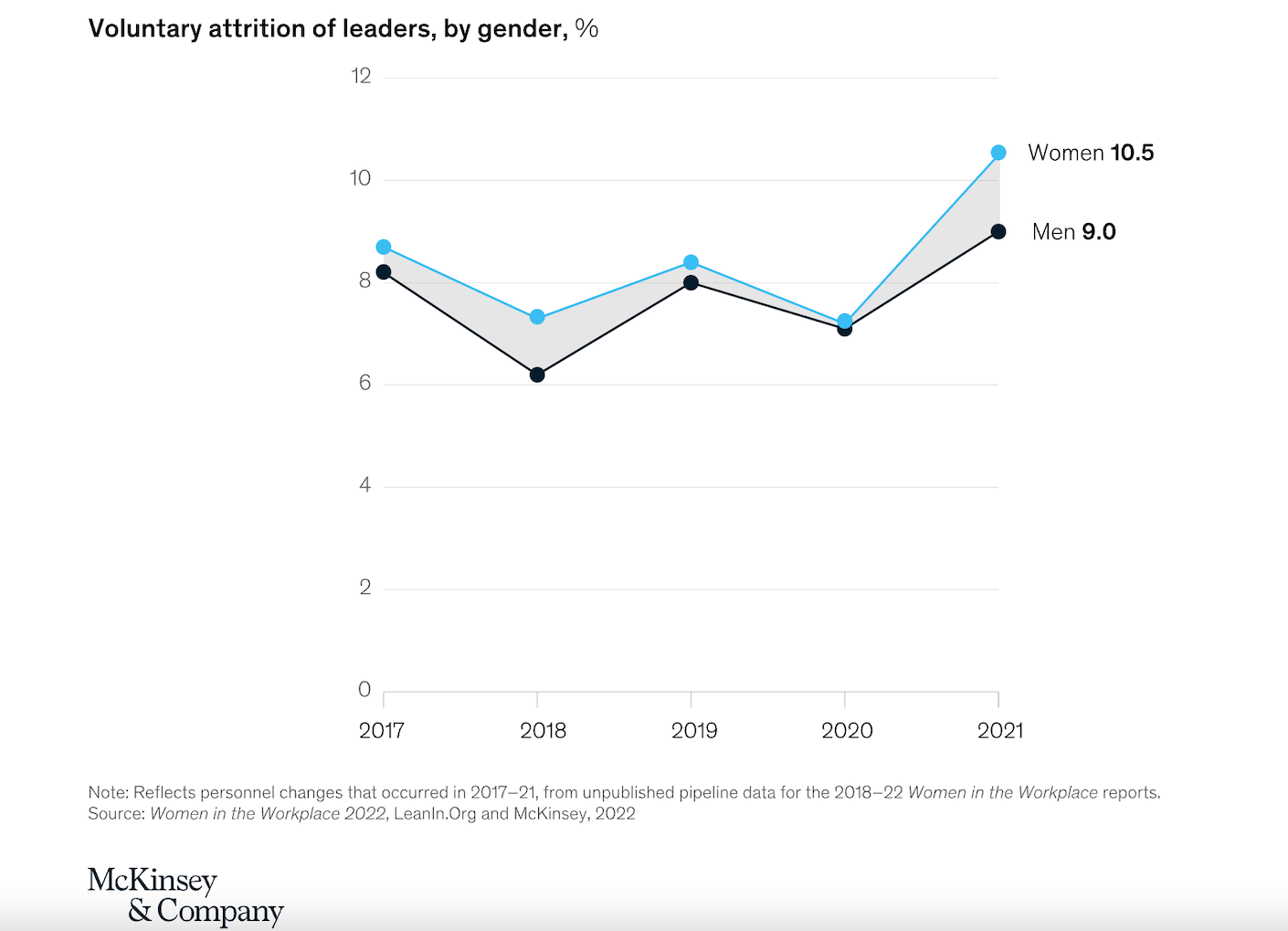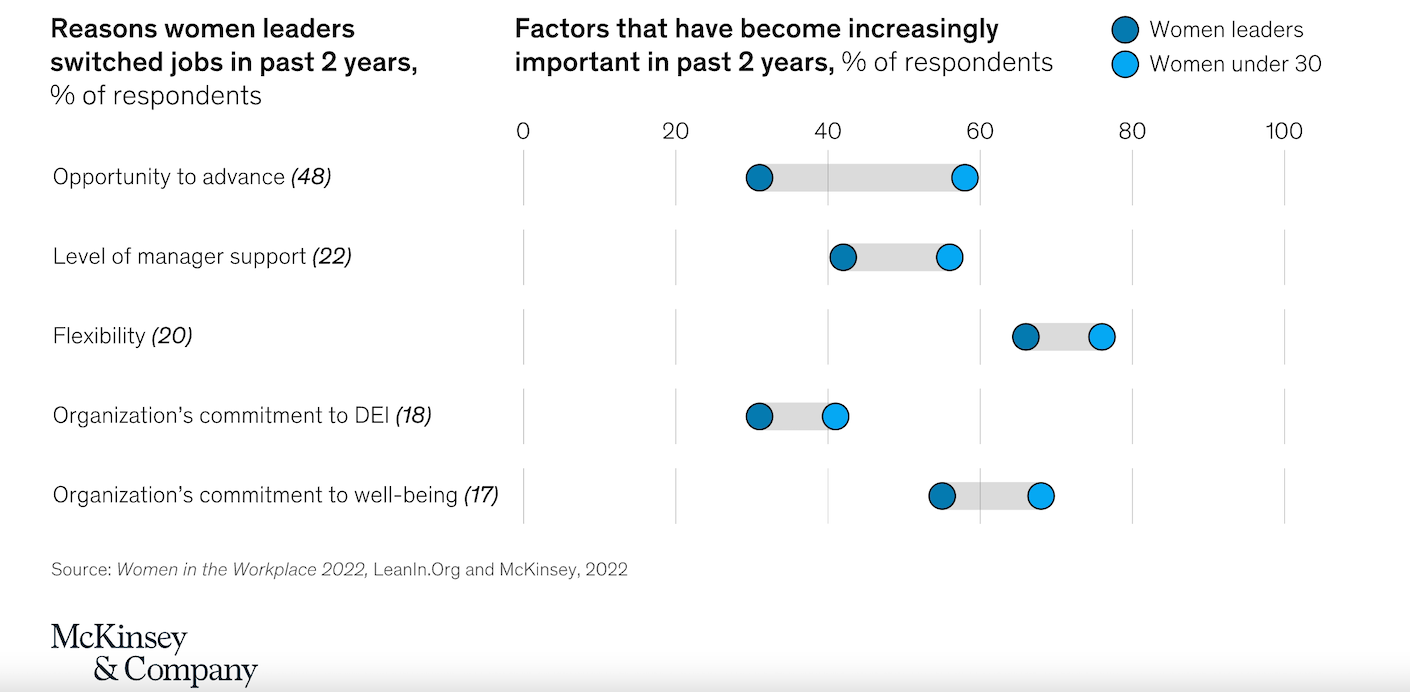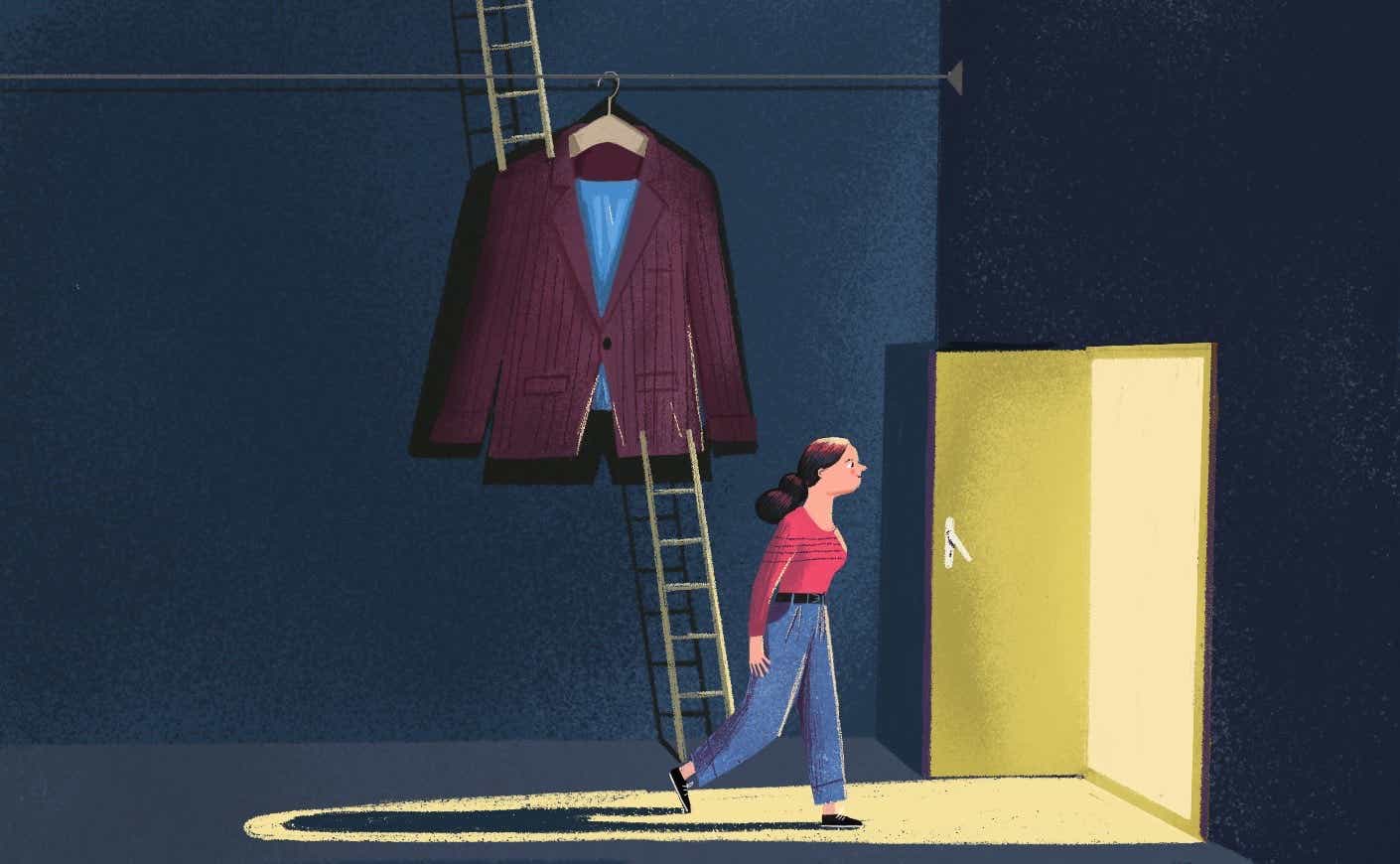Over the past couple years, something contagious swept through the American workforce. We’re not talking about the pandemic, but rather the spread of an interesting sentiment: Employees grew detached from their jobs, and millions quit. This phenomenon, dubbed the Great Resignation, has been thoroughly dissected by economists, sociologists, workplace consultants, and in hundreds of thinkpieces. But a new report by Lean In and McKinsey has revealed a new facet of the trend.
Its Women in the Workplace report, an annual survey of thousands of employees, found that women who’ve ascended to the top of their companies are leaving their posts at an unprecedented rate. The survey shows that for every woman at a director level who gets promoted, two women directors are choosing to quit.
“I wish we were making more progress,” says Lean In CEO and co-founder Rachel Thomas.
Why we’re losing women leaders
Lean In is calling the mass departure of women leaders the “Great Breakup,” and Thomas believes a few different things are fueling it. One issue, that’s likely existed for as long as women have been in boardrooms, is that female leaders are more often the target of microaggressions — like having their competence questioned or being mistaken for someone more junior. These slights add up: Female employees report that microaggressions subtly undermine their authority and view them as a sign that it may be harder to advance.
Another long-standing issue is what Thomas calls the “double shift.” Studies show that as men rise up the ranks, they typically do less housework. The same isn’t true for most women, Thomas explains. So even with more responsibility at work, women are still expected to perform the bulk of the work at home, and spend more time caring for kids or relatives. That dynamic has stretched many high-ranking women thin.

But the pandemic changed the game. Within days, companies pivoted to allow their employees to work from home, having “embraced flexibility in a way that we never would’ve imagined pre-pandemic,” Thomas says. “Jobs that you never would’ve thought could be done remotely, all of a sudden we were doing remotely. Companies really rose to the moment,” she says.
That gave women hours of their days back to spend with their families. And, according to the Lean In report, it’s had a tremendous mental benefit, too. Women reported that they face fewer microaggressions and experience higher levels of psychological safety while working remotely. But with the threat of the virus subsiding, many corporations have rushed to return to the status quo. And many women are refusing to go back. In a recent survey, 68 percent of women said they prefer remote work, compared to 57 percent of men. “They don’t wanna go back to business as usual,” Thomas says. “They wanna continue moving forward as a workplace.”
They’re demanding progress in other areas too. Through the pandemic, while the country roiled over the murder of George Floyd, corporate America was forced to reflect on how it could bring more diversity into its own ranks. Companies rolled out diversity, equity, and inclusion (DEI) efforts and largely it was female executives who stepped up to steer those programs. But 40 percent of women leaders said those contributions are being overlooked in performance reviews.
All told, women at the top are overtaxed. And conditions are even worse for women of color, who report experiencing more microaggressions and less support from their colleagues. For many, the pandemic served as “a wake-up call to reorganize their time,” says Jenn Lim, CEO of the consultancy Delivering Happiness and author of Beyond Happiness. She believes women are reevaluating what they want out of work and out of life. A number seem to have concluded that if their organizations aren’t providing hybrid or remote work options or prioritizing DEI causes, they can leave for a company that is — even if that means taking a position lower down the ladder. And those who aren’t may be “quiet quitting,” Lim says.
“Maybe they’re not clinging to the rat race or to progressing in their career track,” Lim says. “But in so many ways, making the choice to leave is progress, because it really is diverting and prioritizing their lives in a more meaningful way.”
That doesn’t mean that women are any less ambitious. Studies show that female leaders are just as driven as their male counterparts. But what’s occurring is something like a mass perspective shift. Thomas believes one survey respondent captured that best; she wrote: “Burnout from management responsibilities and unsustainable workload has made me more ambitious, but not in the same way. I’m more ambitious about going after something different. I’m more ambitious about making a career change or going after something where I feel more fulfilled.”

What happens when women leave
Women are already underrepresented at the top. Only one in four C-suite execs is a woman, and only one in 20 is a woman of color, per Lean In. If companies don’t take action now, they risk not only losing their current female leaders but also the next generation of talent, the report warns. That's because younger women place even more importance on flexibility and supporting DEI causes, the survey found.
Younger workers are also not enchanted with the “hustle culture” popularized by Silicon Valley’s workaholics, Lim says. And they’re largely turned off by edicts like the one Elon Musk issued to what’s left of his Twitter workforce — to either commit to being “extremely hardcore” or get lost.
“They’re more interested in advancing in many ways, more committed to their careers. But less interested in the status quo and more likely to vote with their feet if they’re not seeing their organizations delivering the culture and opportunities that are so important to them,” Thomas says.
So what can companies do to gain an edge in the war for talent? Fully supporting remote or hybrid work is key, as is a commitment to creating more inclusive and diverse workplaces. Top companies are also creating programs to make sure women get the mentorship they need, and offering perks like emergency childcare benefits and mental health support.
And the ones who don’t adjust may just end up getting dumped — on a massive scale.













